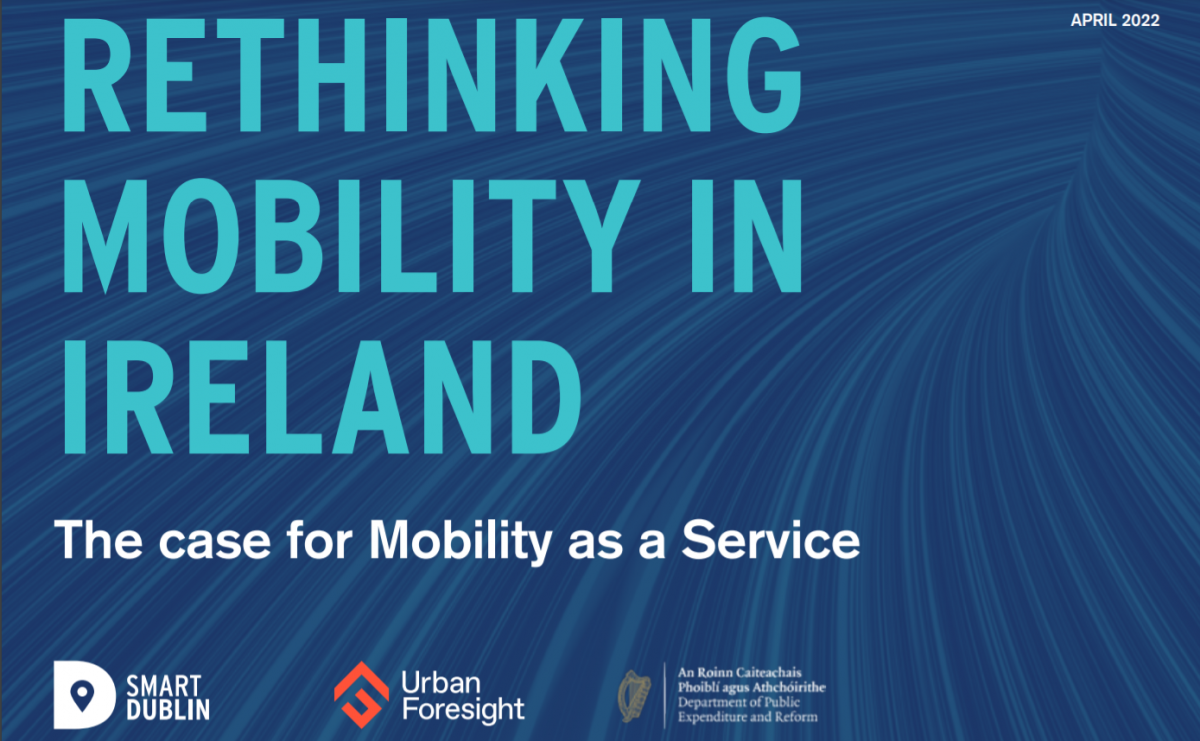Smart Dublin publishes thought leadership on Mobility as a Service (MaaS) for Ireland
In April, the Department of Transport (DoT) published its National Sustainable Mobility Policy (SMP) with an action plan to improve and expand sustainable mobility options across the country by providing safe, green, accessible and efficient alternatives to car journeys.
Actions #81 and #82 identify key next steps for progressing Mobility-as-a-Service (MaaS) in Ireland. In conjunction with the SMP, Smart Dublin is publishing a thought leadership document which provides a way forward on to how to best deliver those actions.
You can view the thought leadership here.

Background
MaaS is a new tool to encourage modal shift in transport. The concept is that by offering tailored and integrated transport information for users, meaning they will have a much more seamless experience. It improves the relative ease of accessing public transport plus new forms of shared mobility – making them collectively much more competitive with private car use.
Smart Dublin initiated a project, funded by the Department of Public Expenditure and Reform through its Public Sector Innovation Fund and supported by Urban Foresight. The project followed the publication of a Point of View on MaaS by Smart Dublin in November 2019, and a MaaS Gap Analysis workshop in March 2020 looking at potential visions of MaaS for Ireland.
What was done?
During 2021, Smart Dublin spoke to 35 organisations across Ireland and Europe to understand their views on MaaS, and the views of their customers, users and citizens. The project went through an options appraisal process: identifying the broad models of MaaS emerging across the world, discussing their benefits and risks with a range of organisations, and evaluating them against design principles. An optimal model for Ireland was then identified.
What kind of MaaS for Ireland?
The MaaS system which best meets Ireland’s needs is one in which public authorities set the objectives and rules of the game, oversee a new data and services hub, and provide or commission the core public transport network – but leave some aspects of transport provision, consumer facing apps and customer ownership to other organisations, at least at first.
At its core, this means commissioning a new national digital infrastructure for gathering relevant data from Mobility providers, making their services interoperable, and allowing other organisations to develop consumer-facing services from that back-end.
It is about creating the foundational market conditions for a dynamic range of mobility services, which empowers innovation, but on terms set by public oversight. MaaS for Ireland should be a long-term investment in a system, not a short-term investment in a particular front-end technology.
What happens now?
This is a proposed vision for MaaS in Ireland. Getting there will require a range of organisations to work together including the DoT, the NTA, Local Authorities, Mobility providers (public and private), etc. The DoT has identified a first step in their SMP – for the NTA to establish the governance framework for MaaS. The Dublin councils are already considering better data arrangements for existing and new shared mobility regulation (e.g. bike-sharing, car-clubs, escooters). Mobility providers can look to this thought leadership as to the likely opportunities for them plus requirements for data sharing and service interoperability in Ireland.
You can view the thought leadership here.
If you have any questions or would like to get involved please email info@smartdublin.ie.